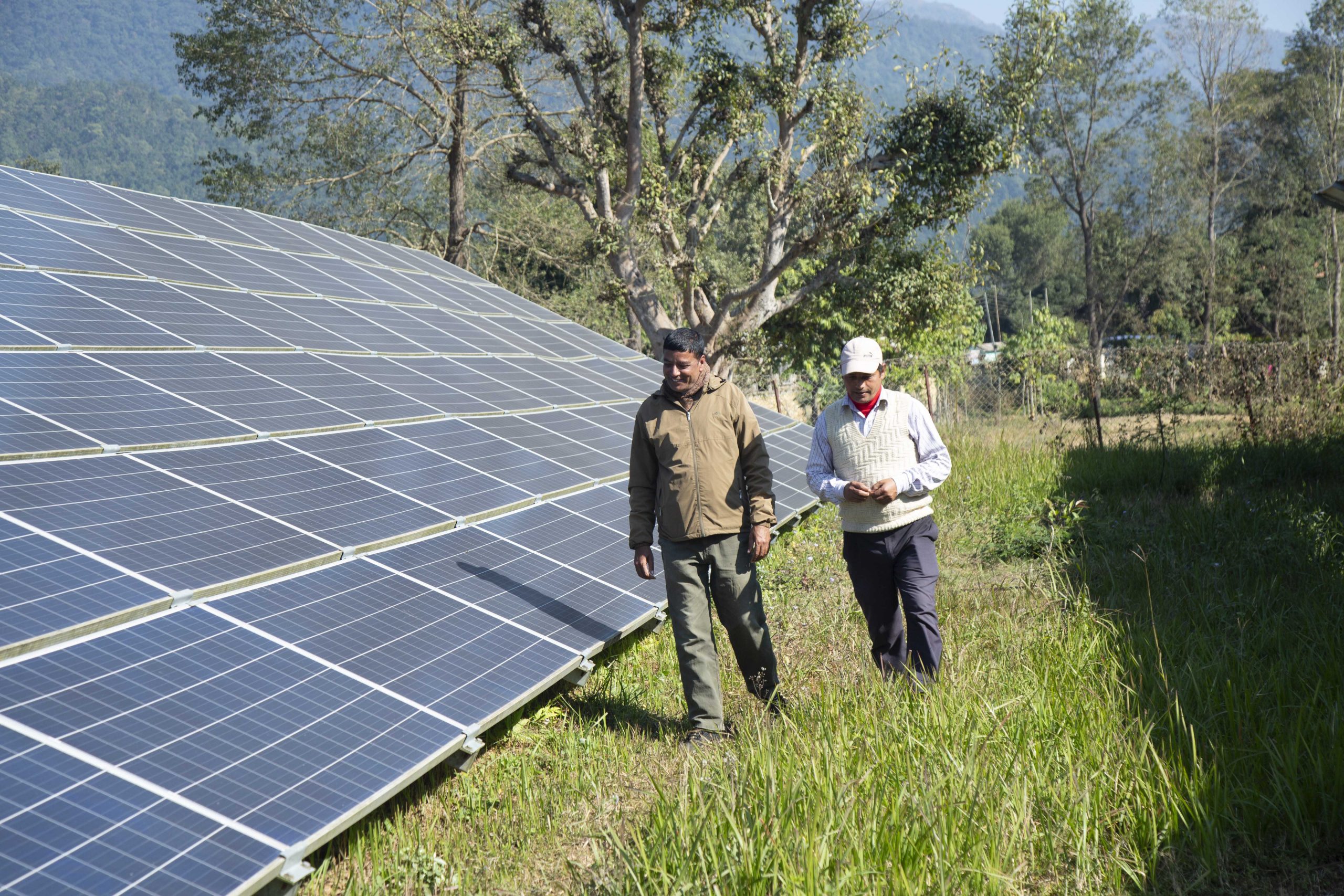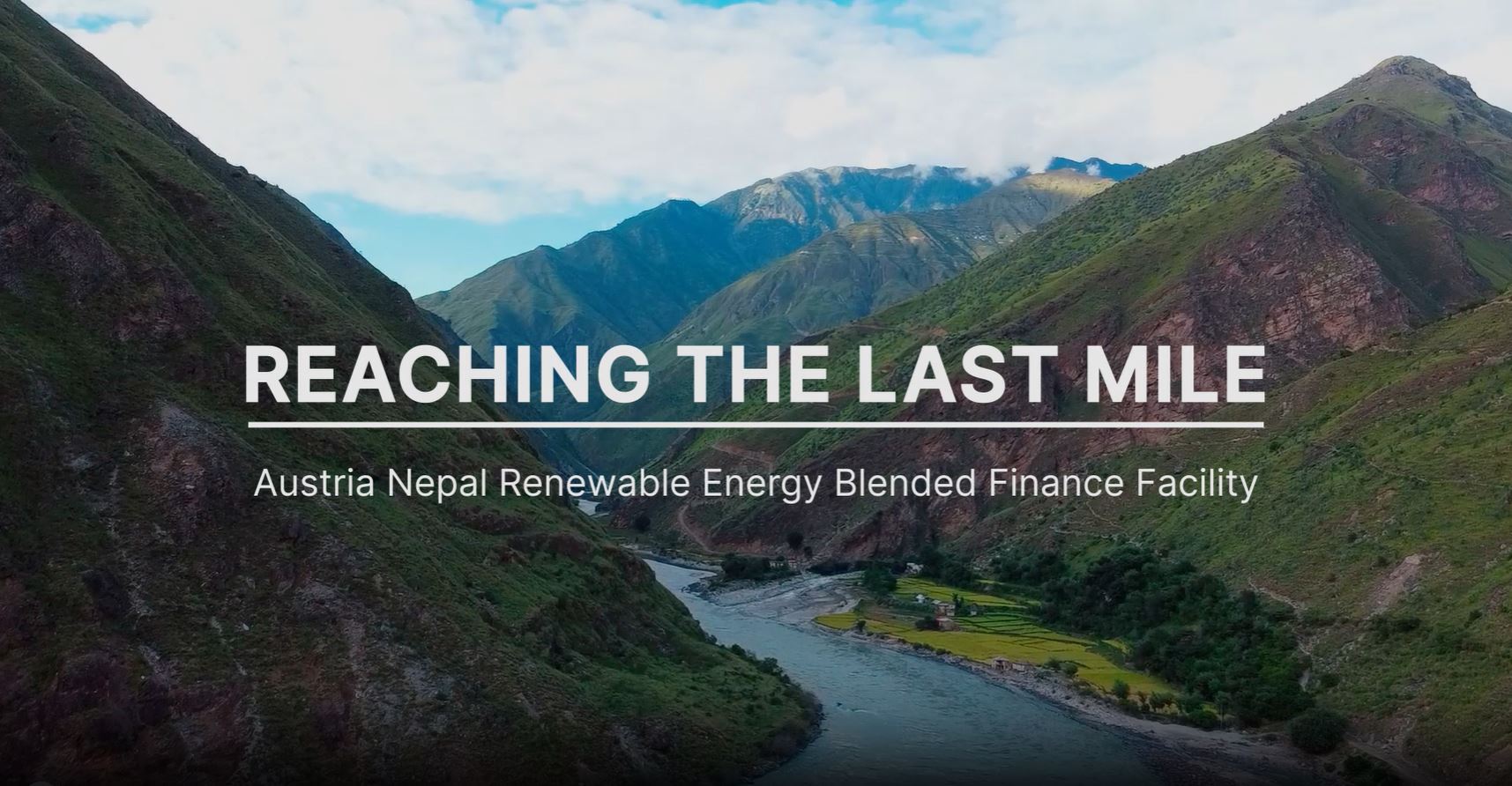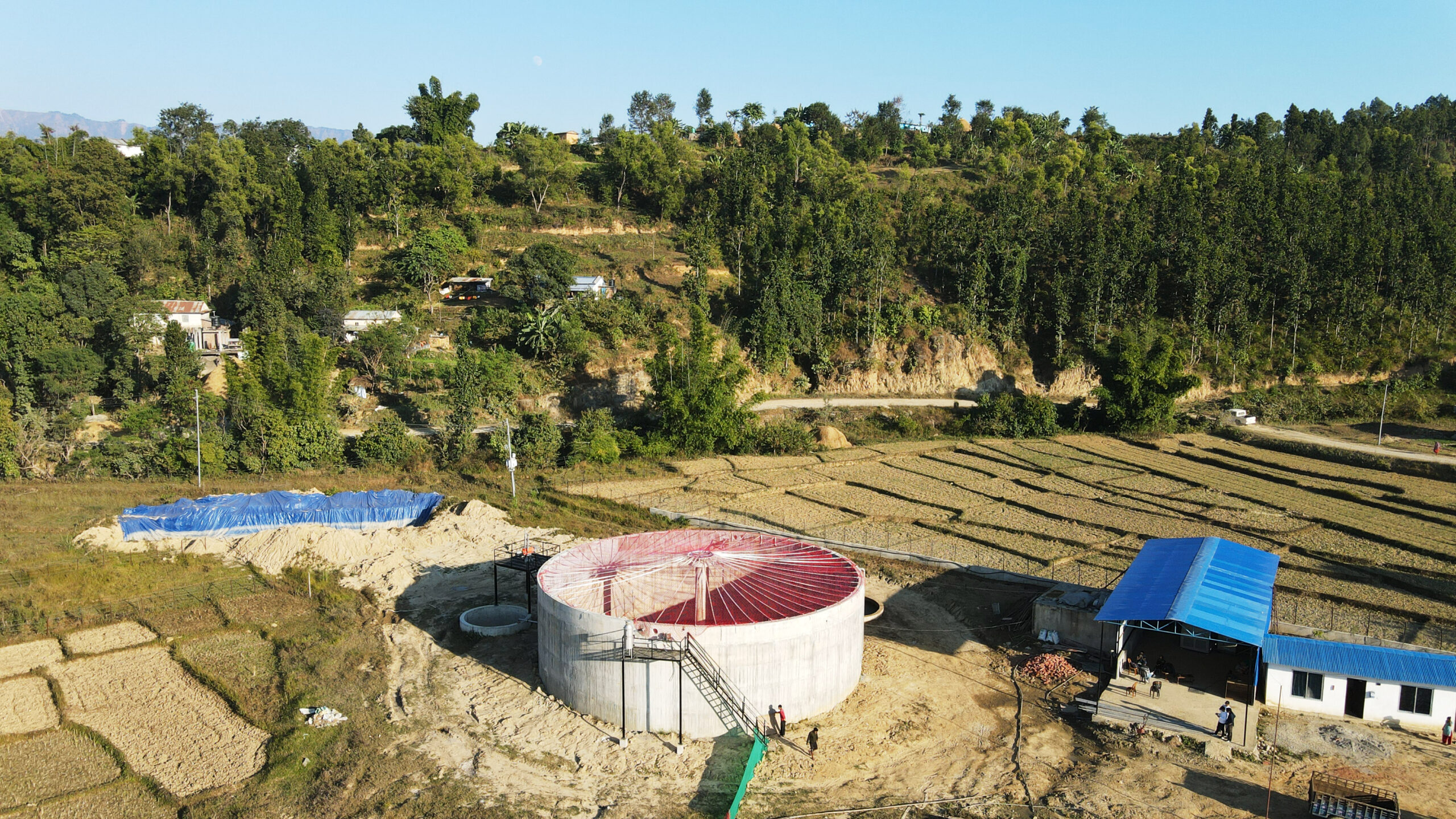Austria – Nepal Renewable Energy Blended Finance Facility
Combining an innovative blended finance instrument with capacity-building activities for renewable energy projects

About this
Programme
Nepal is facing an energy crisis of unprecedented proportions. The electricity generation capacity managed by Nepal Electricity Authority (NEA) is insufficient to meet demand, leading to frequent power outages. Though the government has been highly effective in expanding energy access – from 28% in 2000 to 69% in 2010 and 94% in 2020 – around 1.7 million Nepalis still do not have access to modern energy, and over 73.5% of the population relies on traditional biomass for cooking (as of 2019).
Addressing the energy crisis by accelerating the deployment of modern renewable energy solutions, both on- and off-grid, is a high priority for the Government of Nepal, as the country aims to achieve universal electrification by 2030.
Many communities that remain off the grid are in remote, mountainous areas where small-scale clean energy generation is the only viable solution for electrification. However, the universal access goal cannot be reached with public and donor funding alone, and the government aims to help the energy sector access new sources of financing through a shift from ‘aid to trade’ and from ‘subsidy to credit’.
You are currently viewing a placeholder content from YouTube. To access the actual content, click the button below. Please note that doing so will share data with third-party providers.
More Information
Innovative Finance
The Austria-Nepal Renewable Energy Blended Finance Facility, funded by the Austrian Government and implemented by REEEP in cooperation with SNV and NMB Bank Nepal, supports this shift by establishing a blended finance instrument for renewable energy projects and carrying out capacity-building activities. It is working towards:
- mainstreaming commercial lending for renewable energy projects in Nepal
- building capacity among key stakeholders at the provincial level for upscaling renewable energy programmes
- accelerating the transition of the Nepalese clean energy market away from being mostly dependent on subsidies, and help establish a market based on credit to enhance the Nepalese government’s access to and use of international technical assistance and finance.
In addition, the project aims to generate co-benefits such as a reduction of GHG emissions and increased productive end use of energy. It will run until December 2027, with the core period of implementation in 2021- 2023.

The Location
The project’s activities are focused in the province of Karnali Pradesh in north-western Nepal, one of the country’s most remote and least developed regions. In our drive to reach last mile customers and build on our prior work, REEEP is leveraging the experience gained through the implementation of our previous project in Nepal, which provided credit for improved water mills for the productive use of energy.
Our Activities
Market scoping activities and capacity need assessment in Karnali have been completed by SNV, and a pipeline of potentially bankable, ready-to-be-financed projects in the off-grid sector (solar, mini-grid, micro-hydro, biogas) has been established. Different renewable energy technologies and project sizes will be considered to increase the visibility, awareness and showcase the various uses of the credit guarantee mechanism.
Donors and Partners

Funder

Implementing Partner

Project Partner